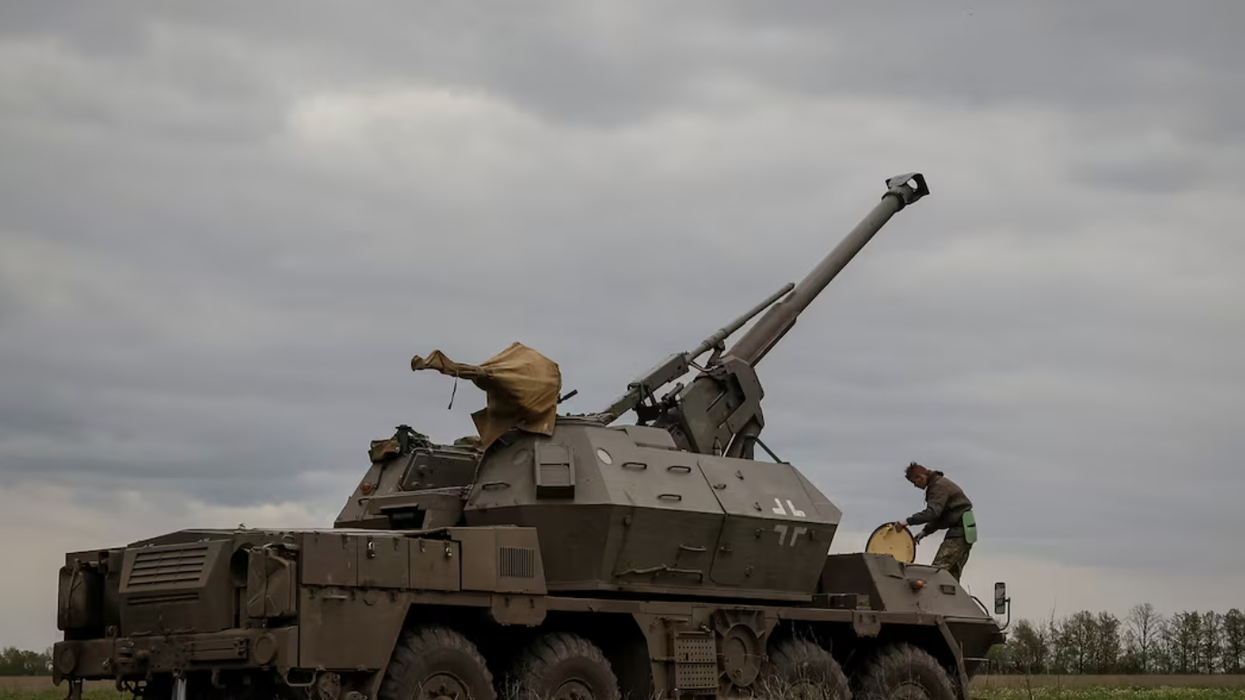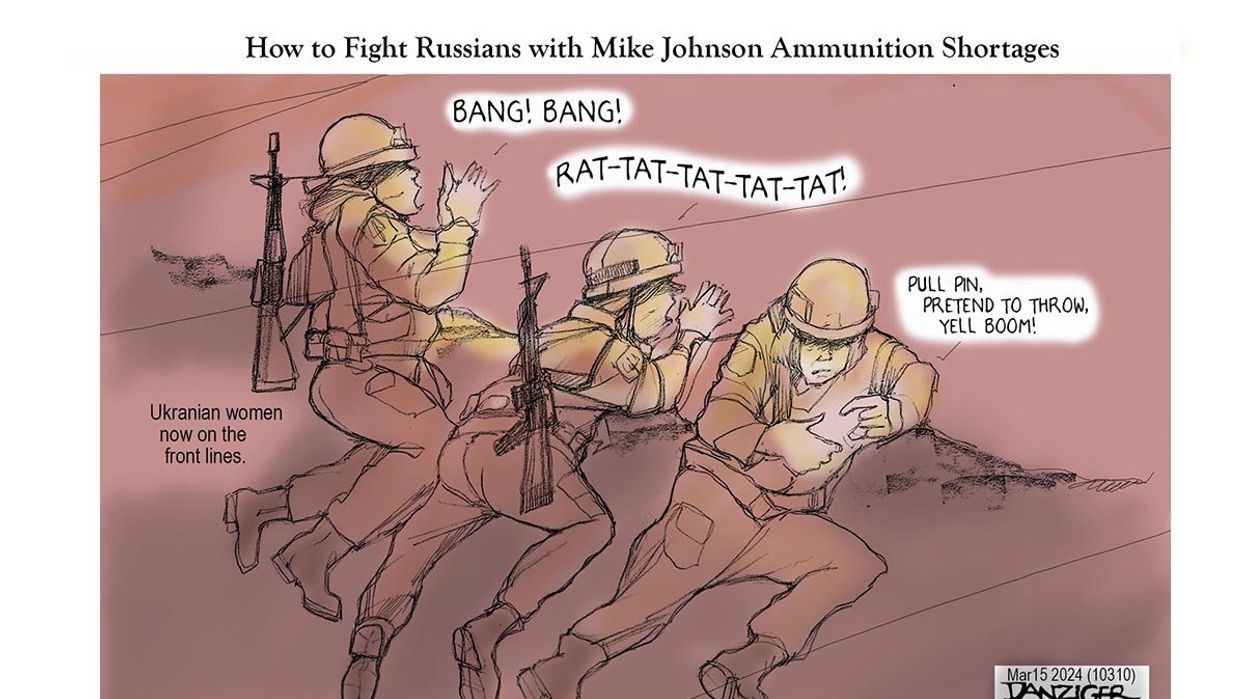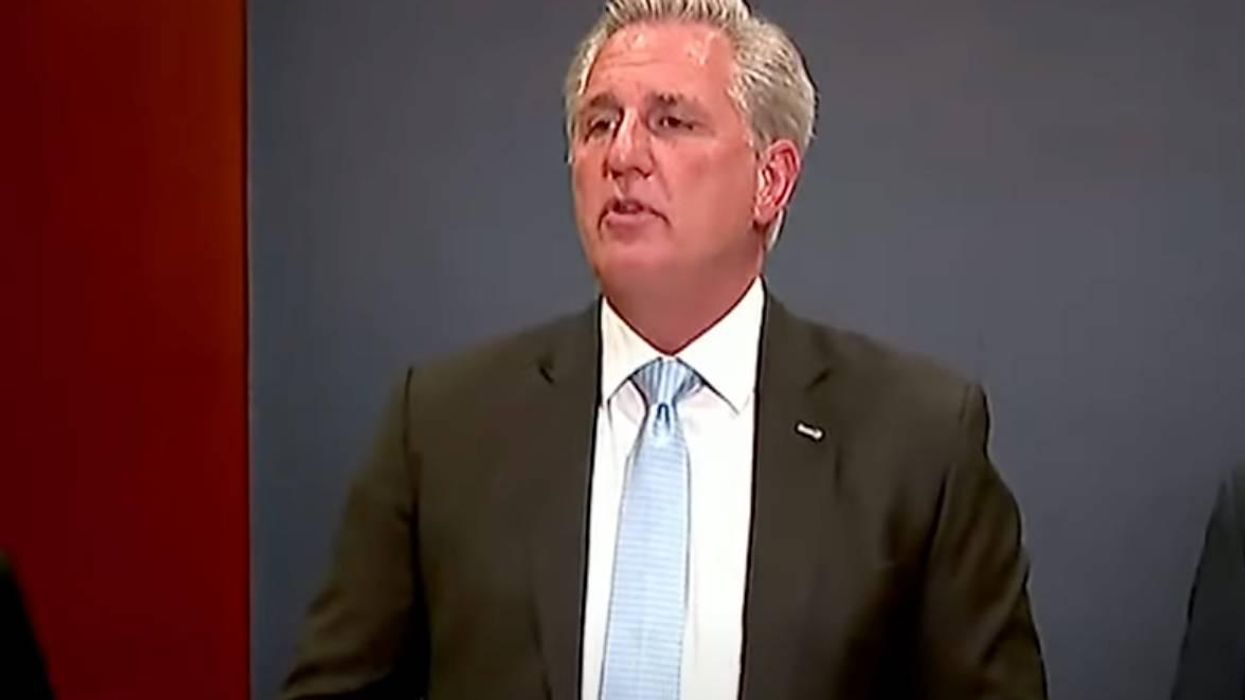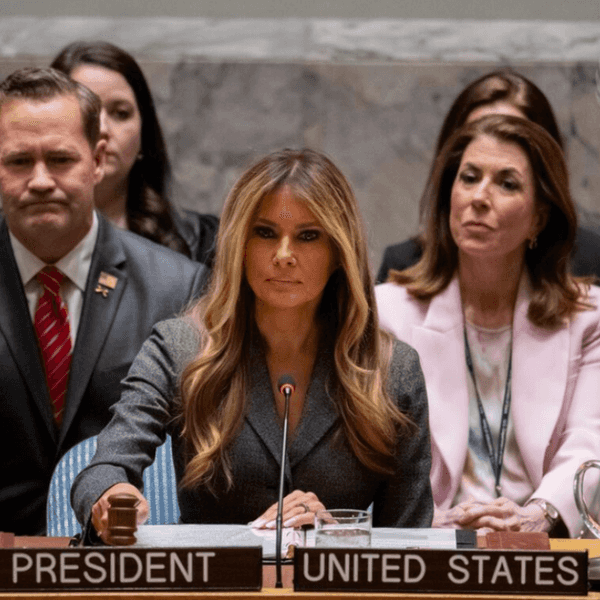Why Are We Doing Less For Ukraine's Defense Than Tiny Denmark?
A little under two months ago, tiny Denmark – with a population less than that of New York City and a GDP of $400 billion – committed its “entire artillery” to Ukraine. “The Ukrainians are asking us for ammunition now. Artillery now. From the Danish side, we decided to donate our entire artillery,” Danish Prime Minister Mette Frederiksen told the Munich Security Conference on February 18.
How did we, the richest, most powerful nation in the world, become the country that is turning its back on Ukraine? I’m using the royal “we” here, but you know who I’m talking about: the Republican Party, led by Donald Trump, the party’s presumptive presidential nominee, who ordered House Republicans not to bring up for a vote the Senate’s $95 billion aid package for Ukraine and Israel, which has been moldering on Capitol Hill for nearly two months since the Senate passed it on a bipartisan vote of 70 to 29. Trump was said not to want a bipartisan victory for Biden in an election year, so he picked up the phone and called his poodles in the House and killed a potential deal to bring the Senate bill to the floor where it was expected to pass.
Look at this headline in Sunday’s print edition of the New York Times: “Low on Ammunition, Ukraine Is Ill Equipped to Stop Russian Push.” The story describes a 155 mm howitzer position in Eastern Ukraine where Russia has recently made gains on the ground. The crew of the howitzer had a stock of 33 rounds of ammunition when they received an order to fire on a target. Moments later, they had 16 rounds left. “Artillery decides battles,” said Capt. Vladyslav Slominsky, the commander of the battery with the howitzer that was down to only 16 rounds of ammunition. “Who has more wins.”
The artillery is a proud branch in the United States military. They call their branch “The Queen of Battle” because of the firepower that can be brought to bear on the enemy at a moment’s notice. The war that Ukraine has fought against Russia since the 600 mile front line settled into existence late in 2022 has been almost exclusively an artillery war fought with 155 mm howitzers and HIMARS ground-to-ground rockets.
The Russians have more artillery pieces, more rockets, more tanks, and more soldiers, but Ukraine has hung onto the territory they hold, including the parts they took back from Russian forces near Kharkiv and Kherson earlier in the war. Ukraine’s artillery is said to be more accurate and efficient than Russia’s, which wasted tens of thousands of shells firing wildly into the flat agricultural fields of Eastern Ukraine early in 2023 after the front lines stalemated.
Once Russia began its campaign to take individual towns in Eastern Ukraine such as Bakhmut and Avdiivka, their artillery became more accurate. Given small towns as targets, Russian artillery sat back and simply flattened the towns with tens of thousands of artillery rounds, eventually leaving Ukrainian forces no place left to defend, so they pulled back. Now Russia has claimed to have taken the tiny village of Vodayne, about five miles east of Donetsk and a few miles south of Avdiivka. Tactically, it is yet another redoubt that Ukraine had hung onto as the country continues to defend its eastern flank. Strategically, it is not large enough to be significant.
What is significant, however, is why the village was lost: dwindling ammunition stocks.
The Times quoted Swedish military analyst Johan Norberg saying, “You cannot expect people to fight without ammunition.” But you don’t have to interview an expert to know that armies without bullets cease to be armies and turn into targets.
Vladimir Putin knows this like he knows his own name. Even Donald Trump has seen enough gangster movies to know that when you run out of ammo, you get killed. That’s probably why Trump has leaned on House Republicans not to pass the Ukraine aid bill. If Ukraine runs out of ammunition, and Russia starts winning its war on Ukraine, it will make Trump’s pal Putin happy, and the Russian victories will happen on Joe Biden’s watch. In politics, that is called a win-win.
But it’s a lose-lose not only for Ukraine, but for America’s standing in the world as a bulwark against the kind of totalitarian aggression Russia has brought to bear on its neighbor. Russia could not assert its influence over Ukraine by installing puppet presidents like Viktor Yanukovych, the Ukrainian politician Paul Manafort helped to put in power in 2010. Yanukovych proceeded to loot Ukraine by installing cronies from the region of eastern Ukraine with a large Russian-speaking population, the Donbas. Nearly 50 percent of the economic development budget for the entirety of Ukraine went to the Donetsk and Luhansk regions under Yanukovych.
When he was overthrown in 2014, Putin invaded and occupied Crimea and probably began his plans to militarily invade and seize all of Ukraine. Yanukovych, naturally, fled to Russia, where he still resides. And Paul Manafort, who ran Trump’s campaign in 2016, is said to be in talks to take a prominent position in the current Trump campaign.
What has stood between Putin’s ambitions and Ukraine’s existence is the United States and NATO. Now Donald Trump appears to be running on a platform of turning Ukraine over to Putin and getting the United States out of the NATO alliance, which just last week celebrated its 75th anniversary.
How did we get here? How is it that this corrupt man facing four separate criminal indictments in three different jurisdictions has been able to nearly singlehandedly stymie this country’s ability to help the rest of NATO defeat Putin’s fascistic attempt to take over Ukraine? Why do these Republicans even bother to run for Congress, unless all they really want to do is follow the orders of this man who is weakening the United States with every breath he takes?
What has happened to us? Who are we?
Lucian K. Truscott IV, a graduate of West Point, has had a 50-year career as a journalist, novelist, and screenwriter. He has covered Watergate, the Stonewall riots, and wars in Lebanon, Iraq, and Afghanistan. He is also the author of five bestselling novels. You can subscribe to his daily columns at luciantruscott.substack.com and follow him on Twitter @LucianKTruscott and on Facebook at Lucian K. Truscott IV.
Please consider subscribing to Lucian Truscott Newsletter, from which this is reprinted with permission.












